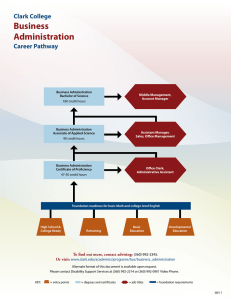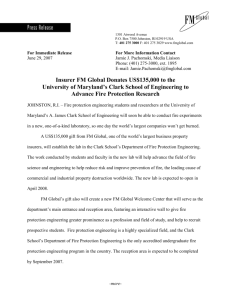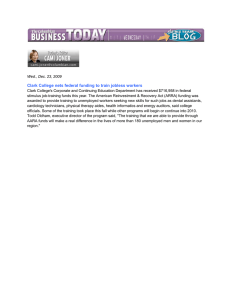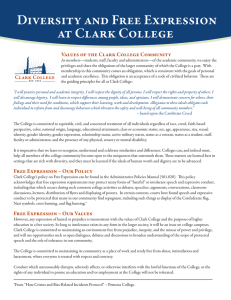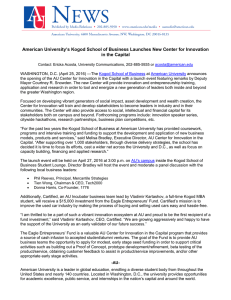MARK CLARK: RESEARCH PRESENTATION SUMMARY Mark Clark
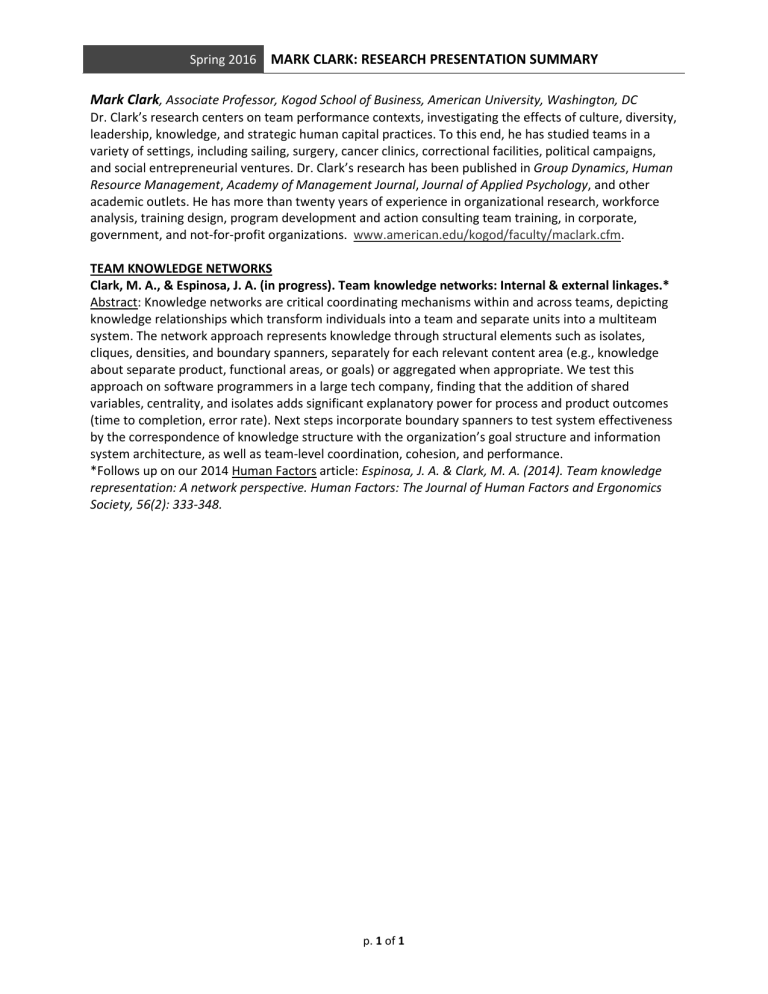
Spring 2016
MARK CLARK: RESEARCH PRESENTATION SUMMARY
Mark Clark
, Associate Professor, Kogod School of Business, American University, Washington, DC
Dr. Clark’s research centers on team performance contexts, investigating the effects of culture, diversity, leadership, knowledge, and strategic human capital practices. To this end, he has studied teams in a variety of settings, including sailing, surgery, cancer clinics, correctional facilities, political campaigns, and social entrepreneurial ventures. Dr. Clark’s research has been published in Group Dynamics , Human
Resource Management , Academy of Management Journal , Journal of Applied Psychology , and other academic outlets. He has more than twenty years of experience in organizational research, workforce analysis, training design, program development and action consulting team training, in corporate, government, and not-for-profit organizations. www.american.edu/kogod/faculty/maclark.cfm
.
TEAM KNOWLEDGE NETWORKS
Clark, M. A., & Espinosa, J. A. (in progress). Team knowledge networks: Internal & external linkages.*
Abstract: Knowledge networks are critical coordinating mechanisms within and across teams, depicting knowledge relationships which transform individuals into a team and separate units into a multiteam system. The network approach represents knowledge through structural elements such as isolates, cliques, densities, and boundary spanners, separately for each relevant content area (e.g., knowledge about separate product, functional areas, or goals) or aggregated when appropriate. We test this approach on software programmers in a large tech company, finding that the addition of shared variables, centrality, and isolates adds significant explanatory power for process and product outcomes
(time to completion, error rate). Next steps incorporate boundary spanners to test system effectiveness by the correspondence of knowledge structure with the organization’s goal structure and information system architecture, as well as team-level coordination, cohesion, and performance.
*Follows up on our 2014 Human Factors article: Espinosa, J. A. & Clark, M. A. (2014). Team knowledge representation: A network perspective. Human Factors: The Journal of Human Factors and Ergonomics
Society, 56(2): 333-348. p. 1 of 1

